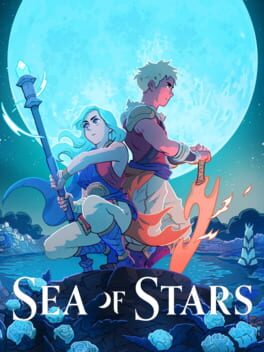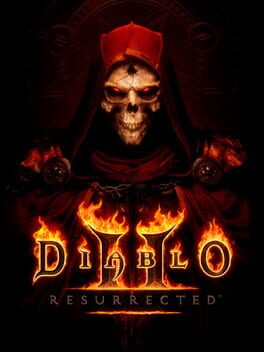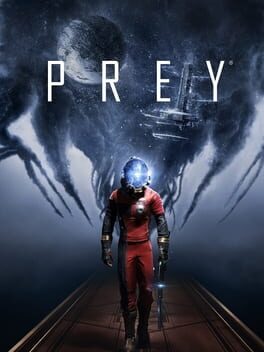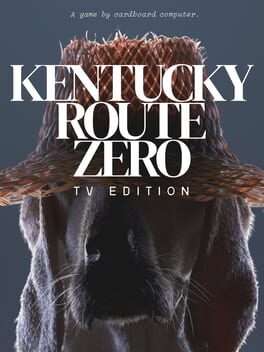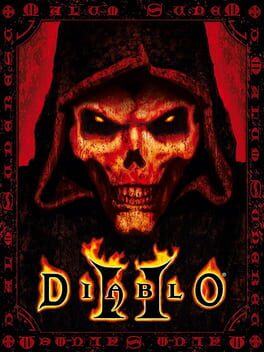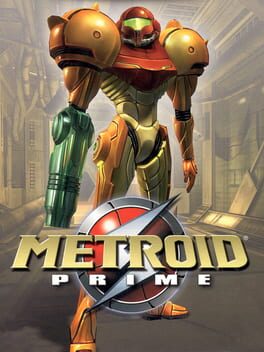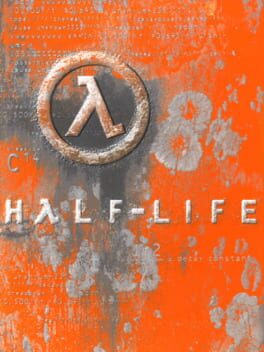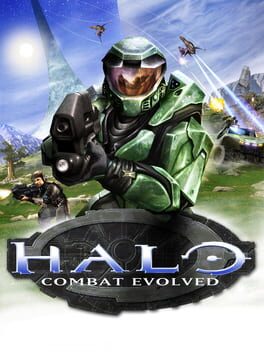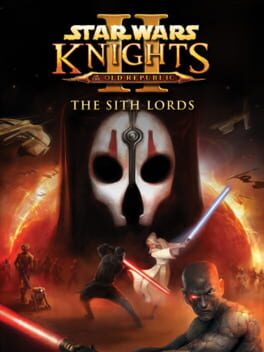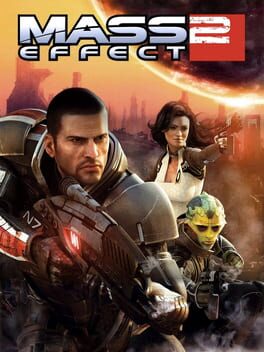PoetLorien
2023
Has a wit, charm and sense of forward momentum very few "retro for retro's sake" games get to have. A small but generally well drawn (and slightly overdesigned) set of characters, a propulsive and surprisingly emotional main storyline, and some really wonderful artistic flourishes, all neatly wrapped in a ~30 hour package. It won't convince a JRPG hater that they've wasted their life, but it's a more than worthy addition to the Chrono-like canon, and one of the better games of 2023.
2022
2023
It's often been said that good games copy others, but great games create influence for others to copy. Very few recent great games challenge this idea more than Hi-Fi Rush. Equal parts Devil May Cry, Metal Gear Rising, Jet Set Radio, Sunset Overdrive and Guitar Hero; it's a whimsical, saccharine, corny, delightful, funny, silly, goofy and extremely light hearted character action romp, and the first must play game of 2023.
The character writing is just sharp enough to not be grating, the performances are all stellar, the art and level design is gorgeous (cel shading can never die) and the combat system is deeper than it might appear, but the real gem here is the soundtrack. Few games have ever used licensed music more effectively than this. From Nine Inch Nails to The Prodigy to fucking Zwan, this game is a treasure trove of mid-2000s goofy cool. It's a game that feels like it was made by a bunch of 17 year olds in the best way possible. Play it.
The character writing is just sharp enough to not be grating, the performances are all stellar, the art and level design is gorgeous (cel shading can never die) and the combat system is deeper than it might appear, but the real gem here is the soundtrack. Few games have ever used licensed music more effectively than this. From Nine Inch Nails to The Prodigy to fucking Zwan, this game is a treasure trove of mid-2000s goofy cool. It's a game that feels like it was made by a bunch of 17 year olds in the best way possible. Play it.
2022
Pentiment is a unique game in a lot of ways (art style, setting, pacing) but in no way more so than the fact that it's a detective mystery game where you play...as a bad detective. That's not to impugn Andreas' character (unless you choose to make him that way), just that nobody with the lack of time and resources he has could have done much better.
The time is the early 16th century. The location is Lower Bavaria. The suspects are plentiful, and the evidence is all circumstantial. It's a losing game. And you will lose. No matter who you choose in the game's initial whodunit, you will feel as though you made the wrong choice. Even if you don't choose, someone who may not deserve death will receive it, while all those who do are free to keep on with their particular brands of evil.
To say nothing of the incredible amount of research and (from what I can tell) period accurate reference and style, Pentiment succeeds best where it confronts the player with their choices, often times choices made in the heat of the moment and with no better options on the table. This is a time-management game where there's never as much time as you think, a game spanning a quarter century where precocious children grow and change and have children of their own, a game less about generations of families than the groth and death and intertwining of one big community, myths and legends and fables all drawn over one another, everything built on top of the ruins of what came before. A game where your choices matter, not so much in the power fantasy sense where they completely shape the course of an entire universe like some other games claim (such acts are reserved for the Monarchy alone in this world), but where they matter because they effect how the people around you think and feel about you. It's never an absolute condemnation, but never absolution either.
Plenty of games deal with failure. Plenty of detective games, even. But only possibly Disco Elysium is as committed to showing you the consequences of your failure as Pentiment. Above everything else, that incredible art style and imaginative inner worlds, the simple annotations and unpretentious quest design, the extremely winning dialogue, character writing and world building (the different fonts for different classes of people is a masterstroke), it's this commitment to community, to the after effects of tragedy and loss, that make Pentiment the best game of 2022, and one of the best of the last decade.
Plus, you can make your Andreas a Latin pedant who constantly corrects people's grammar. Everyone hates it. This is true representation for Classics and Literature Majors.
The time is the early 16th century. The location is Lower Bavaria. The suspects are plentiful, and the evidence is all circumstantial. It's a losing game. And you will lose. No matter who you choose in the game's initial whodunit, you will feel as though you made the wrong choice. Even if you don't choose, someone who may not deserve death will receive it, while all those who do are free to keep on with their particular brands of evil.
To say nothing of the incredible amount of research and (from what I can tell) period accurate reference and style, Pentiment succeeds best where it confronts the player with their choices, often times choices made in the heat of the moment and with no better options on the table. This is a time-management game where there's never as much time as you think, a game spanning a quarter century where precocious children grow and change and have children of their own, a game less about generations of families than the groth and death and intertwining of one big community, myths and legends and fables all drawn over one another, everything built on top of the ruins of what came before. A game where your choices matter, not so much in the power fantasy sense where they completely shape the course of an entire universe like some other games claim (such acts are reserved for the Monarchy alone in this world), but where they matter because they effect how the people around you think and feel about you. It's never an absolute condemnation, but never absolution either.
Plenty of games deal with failure. Plenty of detective games, even. But only possibly Disco Elysium is as committed to showing you the consequences of your failure as Pentiment. Above everything else, that incredible art style and imaginative inner worlds, the simple annotations and unpretentious quest design, the extremely winning dialogue, character writing and world building (the different fonts for different classes of people is a masterstroke), it's this commitment to community, to the after effects of tragedy and loss, that make Pentiment the best game of 2022, and one of the best of the last decade.
Plus, you can make your Andreas a Latin pedant who constantly corrects people's grammar. Everyone hates it. This is true representation for Classics and Literature Majors.
2017
Immersive sims are a difficult genre to get a hold on from the outside. Not to say that they're completely insular but for 30 years or so, the only games they're really interested in having a conversation with are other immersive sims. The new Deus Ex games are talking to the old Deus Ex games and Dishonored. Dishonored is talking to Thief. BioShock is talking to System Shock. System Shock is talking to Ultima Underworld, and so on, and so forth. It's not as though these games are unplayably hard or untenably complex, they just use a language that can seem impenetrable from the outside. Like the modern MCU, asking an Immersive Sim fan how to get into the genre can often lead to "well you've got to do these 5 things first," but unlike the modern MCU, the rewards are intellectually stimulating and fun to experience outside of rote completionism.
If there's one game that all these games are talking to above all others, it's the original Deus Ex, or more specifically for our purposes Warren Spector's initial "Troubleshooter" concept, a game set entirely in a city block, where the player can do basically anything they can conceive of. Thin as a stream, deep as an ocean. The original vertical slice. To my eyes, no game, before or since, comes as close to achieving this dream as PREY.
Set on a research station orbiting the moon, PREY is mostly a Carpenterian horror game, but it's also a loot based survival game, a stealth actioner, a puzzle game and a treatise on the nature of simulations. Mostly though, it's a game about navigating just one, cohesive, fully realized location. Talos 1 isn't the largest game world, it isn't the most complex, and it certainly isn't the least restrictive. Like the original Arkham Asylum, however, it feels like someplace real, like every possible space has a purpose, is used to the fullest. You can go to a window and then go outside the space station and see through that same window to the room you were just in. You can hop into a vent and see how it actually connects to a central area and isn't just a shortcut between rooms. Doors that should be locked are locked, rooms that should be open are open. Arkane called it's level designers "architects," and that's the only real way to describe what they achieved here.
It's that cohesion of design that really separates PREY even from its cousin Dishonored. This is a game about collecting loot and trash, so of course it's a game where little spindly alien spiders can disguise themselves as that trash and attack you. This is a game about open spaces and player driven solutions, so of course there's a glue gun that lets you create platforms wherever you want. This is a game about simulations and reflections, so of course there's an augmented reality machine on the ship that shows you reflections of both yourself and other people's brains, and of course it's called The Looking Glass.
Even now, I feel as though I've barely described how PREY, in openly acknowledging that you have no real agency, is one of the few games to actually say anything meaningful about it, to give you choices that feels like they mean something solely because they're what you chose to do, not because they unlock secret endings or alternate weapons skins. It's a game that scales the cliff of developers wasting time by making things most players will never seen by just filling the entire game with that stuff. It's System Shock and it's Deus Ex, sure, but it's also a game that handles concepts that feel like they came from 20 years in the future as well, and that's before I even talk about Mooncrash, the game's lone DLC that takes all these concepts and ramps them up by 10.
If you're into intricate systems, well designed levels, cool art or Benedict Wong, you simply must play Prey. Now if only that name was better...
If there's one game that all these games are talking to above all others, it's the original Deus Ex, or more specifically for our purposes Warren Spector's initial "Troubleshooter" concept, a game set entirely in a city block, where the player can do basically anything they can conceive of. Thin as a stream, deep as an ocean. The original vertical slice. To my eyes, no game, before or since, comes as close to achieving this dream as PREY.
Set on a research station orbiting the moon, PREY is mostly a Carpenterian horror game, but it's also a loot based survival game, a stealth actioner, a puzzle game and a treatise on the nature of simulations. Mostly though, it's a game about navigating just one, cohesive, fully realized location. Talos 1 isn't the largest game world, it isn't the most complex, and it certainly isn't the least restrictive. Like the original Arkham Asylum, however, it feels like someplace real, like every possible space has a purpose, is used to the fullest. You can go to a window and then go outside the space station and see through that same window to the room you were just in. You can hop into a vent and see how it actually connects to a central area and isn't just a shortcut between rooms. Doors that should be locked are locked, rooms that should be open are open. Arkane called it's level designers "architects," and that's the only real way to describe what they achieved here.
It's that cohesion of design that really separates PREY even from its cousin Dishonored. This is a game about collecting loot and trash, so of course it's a game where little spindly alien spiders can disguise themselves as that trash and attack you. This is a game about open spaces and player driven solutions, so of course there's a glue gun that lets you create platforms wherever you want. This is a game about simulations and reflections, so of course there's an augmented reality machine on the ship that shows you reflections of both yourself and other people's brains, and of course it's called The Looking Glass.
Even now, I feel as though I've barely described how PREY, in openly acknowledging that you have no real agency, is one of the few games to actually say anything meaningful about it, to give you choices that feels like they mean something solely because they're what you chose to do, not because they unlock secret endings or alternate weapons skins. It's a game that scales the cliff of developers wasting time by making things most players will never seen by just filling the entire game with that stuff. It's System Shock and it's Deus Ex, sure, but it's also a game that handles concepts that feel like they came from 20 years in the future as well, and that's before I even talk about Mooncrash, the game's lone DLC that takes all these concepts and ramps them up by 10.
If you're into intricate systems, well designed levels, cool art or Benedict Wong, you simply must play Prey. Now if only that name was better...
I'm not from Kentucky, but I've been there. I live in an upper Midwest city where 45 minutes and a good sense of direction can take you from a bustling city center to the middle of nowhere, all rolling hills and tired forests and pocket sized towns, little corporate fiefdoms all teetering on the verge of abandonment, through catastrophe or corporate malfeasance or just plain old neglect. Flyover country, most people call it. The American Ruins, I call it. Urban decay is one thing. Rural decay is another entirely.
Kentucky Route Zero is a game (and yes, it's a game, it could not exist as a novel or a show or a series of slides) mostly about what it's like to exist in a post-2008 rural America, where the jobs have gone overseas and where 40% or more of the people are one disaster or accident away from utter financial ruin. It's a game about driving along the backroads at night, feeling like the only person in the world. It's a game about those dusty summer mornings where golden light trickles through the window panes and makes you forget about how powerless you truly are. Mostly, it's a game about reading dialogue bubbles and deciding how what you read makes you (or the character you happen to be controlling at that specific moment in time) happen to feel about it. There are no boss fights or Big Choices, just the struggle to keep going, to keep living in a society that wants nothing more than to crush you down into dust and pave over the remains to build a new parking lot.
Most dialogue driven games, be they classic adventure games, BioWare style RPGSs or even the recent strain of Telltale games, are based around the art of the possible. Around convincing the player that they truly control the narrative, despite the impossibilities of coding and game design that we all know exist. You can't really do whatever you want in Monkey Island, you can only do the things the game designers programmed you to be able to do. By stripping all of that away, KR0's designers are more interested in the art of the impossible, of taking you to places that have not and will not ever exist, and instead of giving you the same old power fantasy, they remind you that even here, in the realm of the impossible, capitalism can still crush you, and that the only agency you truly have is how you choose to feel about it.
I could talk about the terrific music, or the little experimental segments and how they toy with the concept of identity in a medium literally built around being someone else. I could wax poetic about the wonderful characters and the beautiful places they go and how well written all of it truly is (one of the major players is someone named Marquez, if you were wondering what kind of magical realism we're dealing with, here) but that's not what it makes me feel, that's not the parts of this experience that I'm going to take with me until the day that I die. What I'm going to take from this game are non-euclidean caves filled with buzzing skeletons, the white shadow of a giant bird swooping over darkened roads, the ceiling of a bar exploding out into the night sky, silhouettes of horses bathed in the muted light of a road sign. An old bony dog teetering on down the road, abandoned by the people who were supposed to take care of it but refusing to die, either out of pride or shame or both. Collapsed barns. Abandoned houses. The rubble left over after the collapse of the American Dream.
I'm not from Kentucky, but I've been there. And it's both like and not like Kentucky Route Zero in ways I still couldn't describe here and might not be able to if you gave me a hundred years. What I do know is that this game, this experience, is quite possibly the best piece of American art released in the whole of the 2010s.
"I don't think you can win. They say it's a tragedy on the back of the box."
Kentucky Route Zero is a game (and yes, it's a game, it could not exist as a novel or a show or a series of slides) mostly about what it's like to exist in a post-2008 rural America, where the jobs have gone overseas and where 40% or more of the people are one disaster or accident away from utter financial ruin. It's a game about driving along the backroads at night, feeling like the only person in the world. It's a game about those dusty summer mornings where golden light trickles through the window panes and makes you forget about how powerless you truly are. Mostly, it's a game about reading dialogue bubbles and deciding how what you read makes you (or the character you happen to be controlling at that specific moment in time) happen to feel about it. There are no boss fights or Big Choices, just the struggle to keep going, to keep living in a society that wants nothing more than to crush you down into dust and pave over the remains to build a new parking lot.
Most dialogue driven games, be they classic adventure games, BioWare style RPGSs or even the recent strain of Telltale games, are based around the art of the possible. Around convincing the player that they truly control the narrative, despite the impossibilities of coding and game design that we all know exist. You can't really do whatever you want in Monkey Island, you can only do the things the game designers programmed you to be able to do. By stripping all of that away, KR0's designers are more interested in the art of the impossible, of taking you to places that have not and will not ever exist, and instead of giving you the same old power fantasy, they remind you that even here, in the realm of the impossible, capitalism can still crush you, and that the only agency you truly have is how you choose to feel about it.
I could talk about the terrific music, or the little experimental segments and how they toy with the concept of identity in a medium literally built around being someone else. I could wax poetic about the wonderful characters and the beautiful places they go and how well written all of it truly is (one of the major players is someone named Marquez, if you were wondering what kind of magical realism we're dealing with, here) but that's not what it makes me feel, that's not the parts of this experience that I'm going to take with me until the day that I die. What I'm going to take from this game are non-euclidean caves filled with buzzing skeletons, the white shadow of a giant bird swooping over darkened roads, the ceiling of a bar exploding out into the night sky, silhouettes of horses bathed in the muted light of a road sign. An old bony dog teetering on down the road, abandoned by the people who were supposed to take care of it but refusing to die, either out of pride or shame or both. Collapsed barns. Abandoned houses. The rubble left over after the collapse of the American Dream.
I'm not from Kentucky, but I've been there. And it's both like and not like Kentucky Route Zero in ways I still couldn't describe here and might not be able to if you gave me a hundred years. What I do know is that this game, this experience, is quite possibly the best piece of American art released in the whole of the 2010s.
"I don't think you can win. They say it's a tragedy on the back of the box."
2000
One of the most difficult things for any Diablo II fan to do is accurately describe what about this game makes it stand out. Not necessarily from its contemporaries, that seems fairly obvious now (mostly tone, atmosphere, music and the ever elusive feel), but from the games that have after it, particularly its own sequel and all the other pretenders to the throne.
After more than 20 years, I think I've finally nailed it down: it's the illusion of difficulty. The feeling this game gives you of being truly lost in the wilderness, alone and surrounded on all sides by nefarious creatures and evil entities. Even if, in the end, it's not as mechanically complex or brutally difficult, even when compared directly to the Baldur's Gates and Icewind Dales of the world, it's a game that manages to perfectly walk that tight rope between hedonistic power fantasy and ruthless difficulty, with a perfectly sized inventory and the ability to return to town at the click of a button making sure that few treks ever take more than 30-45 minutes and you can return to the warm light of a tavern before things get too rough out there.
This push-pull, specifically adventurous spirit is what separates Diablo II from both its sequel and the various copycats that have come since, it's tough enough to take seriously but not so vicious and unforgiving as to be less fun. Throw in that dark tone, those perfectly designed sound effects, a classic Gothic art style and that stupendously good soundtrack and D2 is simply one of the best games ever made, a perfect alchemical concoction coming along exactly when it needed to, from a Blizzard that still had something to prove, the crown jewel of one of the great developer hot streaks of all time, and perhaps the most winsome and aesthetically captivating game I have ever played.
After more than 20 years, I think I've finally nailed it down: it's the illusion of difficulty. The feeling this game gives you of being truly lost in the wilderness, alone and surrounded on all sides by nefarious creatures and evil entities. Even if, in the end, it's not as mechanically complex or brutally difficult, even when compared directly to the Baldur's Gates and Icewind Dales of the world, it's a game that manages to perfectly walk that tight rope between hedonistic power fantasy and ruthless difficulty, with a perfectly sized inventory and the ability to return to town at the click of a button making sure that few treks ever take more than 30-45 minutes and you can return to the warm light of a tavern before things get too rough out there.
This push-pull, specifically adventurous spirit is what separates Diablo II from both its sequel and the various copycats that have come since, it's tough enough to take seriously but not so vicious and unforgiving as to be less fun. Throw in that dark tone, those perfectly designed sound effects, a classic Gothic art style and that stupendously good soundtrack and D2 is simply one of the best games ever made, a perfect alchemical concoction coming along exactly when it needed to, from a Blizzard that still had something to prove, the crown jewel of one of the great developer hot streaks of all time, and perhaps the most winsome and aesthetically captivating game I have ever played.
2002
Most of my favorite games are from the 2000-2007 period, which makes sense given those are my most formative years, but I readily admit that a lot of them I only have fond feelings for because they codified what games could be in my brain. I suppose Metroid Prime is that for me because it was both my first Metroid and the first single player only game I ever beat entirely on my own, but every time I've tried to go back to it, it's seemed so gargantuan and unwieldy and intimidating that I feel jealous of my 13 old self for being able to do it.
The funny thing is, I didn't even actually finish the other two Prime games until 2013 or so, and those both seemed much smaller to me than the Metroid Prime that exists in my memory. Maybe someday (like when they finally put out that trilogy for the Switch) I'll get to hop back in and see how it holds up, but until then, the Omega Pirate and Mecha Ridley and the eponymous Metroid itself all loom in my memories like nightmares from my youth: unconquerable and 40 feet tall.
The funny thing is, I didn't even actually finish the other two Prime games until 2013 or so, and those both seemed much smaller to me than the Metroid Prime that exists in my memory. Maybe someday (like when they finally put out that trilogy for the Switch) I'll get to hop back in and see how it holds up, but until then, the Omega Pirate and Mecha Ridley and the eponymous Metroid itself all loom in my memories like nightmares from my youth: unconquerable and 40 feet tall.
1998
It's Half-Life. I don't what else I really have to say. Every single game you have ever played where a guy is holding a gun was influenced by this one. Every single game where you can find a keycode in someone's office or have to find your way out of a building by using a sign on the wall, every single game where NPCs walk right up to you and start telling you backstory, every single game where enemies yell out their positions, they all owe a debt to Half-Life that simply cannot ever be repaid. It is one of the foundational texts of this art form, and Ur-game that feels like it has always existed and always will.
Is it still fun to play in 2021? I have no way of answering that fairly. Black Mesa is a great game, too, but takes too many liberties (some of them very good and necessary) to truly recapture that same Half-Life feeling. I'm not even sure I wanted it to. All I know for sure is those scientists are still telling me that I have to go to the test chamber.
Is it still fun to play in 2021? I have no way of answering that fairly. Black Mesa is a great game, too, but takes too many liberties (some of them very good and necessary) to truly recapture that same Half-Life feeling. I'm not even sure I wanted it to. All I know for sure is those scientists are still telling me that I have to go to the test chamber.
2001
I'm in a weird spot here, because I'm not sure I can accurately describe what makes this one of my favorite games. The controls are good (and were relevatory in 2001), but hardly perfect. The level design is immaculate at first, but quickly shows what happens when you try and stretch a 5 hour game out to 10 and don't have the manpower to do it. The soundtrack is terrific, but Marty O'Donnell has outdone himself both before and since. For an early 2000s shooter, it tells a decently well-written story decently well, but Half-Life it is not.
So what makes Halo...Halo? I wish I could say differently, but it's the feel. It just feels adventurous and cavalier, like even the game itself doesn't know what's over the next horizon or through the next canyon. The ring itself has this strange ambience to it, like you're really discovering something entirely new. I know that's how it felt to play in early 2002. In all honesty, I should like the other games more than this one, the flaws in CE are pretty glaring, but it's not just nostalgia that makes me say this. This game has held up in the way it feels and moves and sounds, and those were always the most important things for a game to be good at.
So what makes Halo...Halo? I wish I could say differently, but it's the feel. It just feels adventurous and cavalier, like even the game itself doesn't know what's over the next horizon or through the next canyon. The ring itself has this strange ambience to it, like you're really discovering something entirely new. I know that's how it felt to play in early 2002. In all honesty, I should like the other games more than this one, the flaws in CE are pretty glaring, but it's not just nostalgia that makes me say this. This game has held up in the way it feels and moves and sounds, and those were always the most important things for a game to be good at.
The great Noah Gervais recently described this game as being in "diagonal criticism" with the original, and nothing I can say describes it better. It exists to completely demystify, deconstruct and ultimately destroy everything about the original, but it also wouldn't the impact it does by trying that without relying upon the original's world building and lore in the first place, which, even more than the truncated ending and cut content, is what really handicaps this game from ending in any kind of satisfactory way.
But what's there is still worth experiencing, in many ways more so than the first game. It's perhaps the only Star Wars property to ask prying questions about the nature of the Force and what it means to be a "peace keeper" in a galaxy literally defined by constant warfare. It does essentially all the things people (rightly) lauded The Last Jedi for doing, but with much more time to do it. The gameplay was mostly iterative, but a few key adjustments, like lightsaber forms, add some needed variety to keep things interesting.
Nothing can better describe the philosophical and political aims of KotOR 2 better than the fact that two of the four core planets are barren wastelands that used to house the head academies of both the Jedi and Sith. As craven and jealous as Kreia is, she remains one of the saga's most interesting and best characters because it seems as though she alone understands that at the end of the day, barren wastelands are all Force users are good for in the end. It's all they know how to do.
But what's there is still worth experiencing, in many ways more so than the first game. It's perhaps the only Star Wars property to ask prying questions about the nature of the Force and what it means to be a "peace keeper" in a galaxy literally defined by constant warfare. It does essentially all the things people (rightly) lauded The Last Jedi for doing, but with much more time to do it. The gameplay was mostly iterative, but a few key adjustments, like lightsaber forms, add some needed variety to keep things interesting.
Nothing can better describe the philosophical and political aims of KotOR 2 better than the fact that two of the four core planets are barren wastelands that used to house the head academies of both the Jedi and Sith. As craven and jealous as Kreia is, she remains one of the saga's most interesting and best characters because it seems as though she alone understands that at the end of the day, barren wastelands are all Force users are good for in the end. It's all they know how to do.
2010
It's strange, looking back, how much of a relic of the late 00s/early 2010s the Mass Effect games really feel like. They come from an era where "meaningful choices" was really the big selling point in the industry, hell they partly created it. There's something magical about that old modular BioWare formula surviving long enough for the lip synching to work and the faces to look right, and they never got bigger or better than this.
The best way I've ever heard ME2 described is as if it's a full season of your favorite TV show, full of little 20-30 minute side missions, larger multi-hour main missions and little areas of focus on each of your 12 squad members. There's a mysterious, sort of nebulous main foe that you'll eventually have to deal with, but for the most part, the week to week threats are isolated and self-contained. It's really just a series about this strange, broken family unit you end up forming, with just the hint of galactic genocide backing things up to give it that extra kick. It's really hard to explain to someone raised on more immediate, visceral games like CoD or Apex or more open-ended, creative games like Minecraft just how effecting and exciting a game like this can really feel. It hits that exact sweet spot between introducing and building a fictional world and having to actually wrap up the concerns of a fictional world, to where it's just cool to hang out for a while. And despite all the violence and murder, the Mass Effect world works so well because it really does seem like you'd want to be there sometimes. It's hard to capture that feeling in any game, and when you do, it's something you have to savor every drop of .
The best way I've ever heard ME2 described is as if it's a full season of your favorite TV show, full of little 20-30 minute side missions, larger multi-hour main missions and little areas of focus on each of your 12 squad members. There's a mysterious, sort of nebulous main foe that you'll eventually have to deal with, but for the most part, the week to week threats are isolated and self-contained. It's really just a series about this strange, broken family unit you end up forming, with just the hint of galactic genocide backing things up to give it that extra kick. It's really hard to explain to someone raised on more immediate, visceral games like CoD or Apex or more open-ended, creative games like Minecraft just how effecting and exciting a game like this can really feel. It hits that exact sweet spot between introducing and building a fictional world and having to actually wrap up the concerns of a fictional world, to where it's just cool to hang out for a while. And despite all the violence and murder, the Mass Effect world works so well because it really does seem like you'd want to be there sometimes. It's hard to capture that feeling in any game, and when you do, it's something you have to savor every drop of .
You've probably heard this game called "true art" more than enough by now, but it really is staggering how self-assured, intelligent and emotionally vulnerable this game was able to be in 2005. A lot of my favorite games came out then, but nobody would ever accuse something like Halo 2 of being emotionally resonant and introspective.
Well before Spec Ops: The Line came around, well before anyone ever uttered "ludonarrative dissonance," gaming's true auteur, Fumito Ueda, was helming a spiritual successor to Ico that would become one of the greatest and most instantly iconic games ever made.
There's no one thing to point to about Colossus that makes it great, but the entire experience. The soundtrack. The way the colossus' fur floats and sputters in the wind. The true awe you feel when you encounter a new one for the first time. The pangs of guilt you feel when they topple. The quiet beatitude of the Forbidden Lands and the encroaching feeling of unease the further and further you get on Wander's forlorn quest. It's one of the simplest setups imaginable, it works in any language, and yet it hits with a mythic power possibly never before seen in gaming. I could keep going for a thousand more words and still not fully capture what makes Colossus not only the best game on the most popular console ever made, but the best adventure game ever created and one of the truly great pieces of art in recent human history.
Well before Spec Ops: The Line came around, well before anyone ever uttered "ludonarrative dissonance," gaming's true auteur, Fumito Ueda, was helming a spiritual successor to Ico that would become one of the greatest and most instantly iconic games ever made.
There's no one thing to point to about Colossus that makes it great, but the entire experience. The soundtrack. The way the colossus' fur floats and sputters in the wind. The true awe you feel when you encounter a new one for the first time. The pangs of guilt you feel when they topple. The quiet beatitude of the Forbidden Lands and the encroaching feeling of unease the further and further you get on Wander's forlorn quest. It's one of the simplest setups imaginable, it works in any language, and yet it hits with a mythic power possibly never before seen in gaming. I could keep going for a thousand more words and still not fully capture what makes Colossus not only the best game on the most popular console ever made, but the best adventure game ever created and one of the truly great pieces of art in recent human history.
Shame that it took getting death threats after MGS2 to do it, but Kojima finally just sitting down and earnestly trying to make an enjoyable game was the best thing could have happened to him. MGS 3 is the game I recommend to people who don't understand why people like these games so much, it's perfectly paced, the cutscenes are long and goofy but they're based almost entirely on what's going on in the game, and the animations are excellent.
The soundtrack absolutely blasts, it gives you just enough space to really enjoy all the trademark weird Kojima details, the enemy sight lines make more sense and are generally forgiving enough to understand, it's got three of the best boss fights ever conceived (all very different from each other), the 60s Bond homages are terrific and fun. It's just a great game, and it balances a camp silliness through most the runtime with one of the most sobering, tragic and truly emotionally affecting endings in the history of the medium. It's as close to perfect as any action game has ever gotten.
The soundtrack absolutely blasts, it gives you just enough space to really enjoy all the trademark weird Kojima details, the enemy sight lines make more sense and are generally forgiving enough to understand, it's got three of the best boss fights ever conceived (all very different from each other), the 60s Bond homages are terrific and fun. It's just a great game, and it balances a camp silliness through most the runtime with one of the most sobering, tragic and truly emotionally affecting endings in the history of the medium. It's as close to perfect as any action game has ever gotten.
